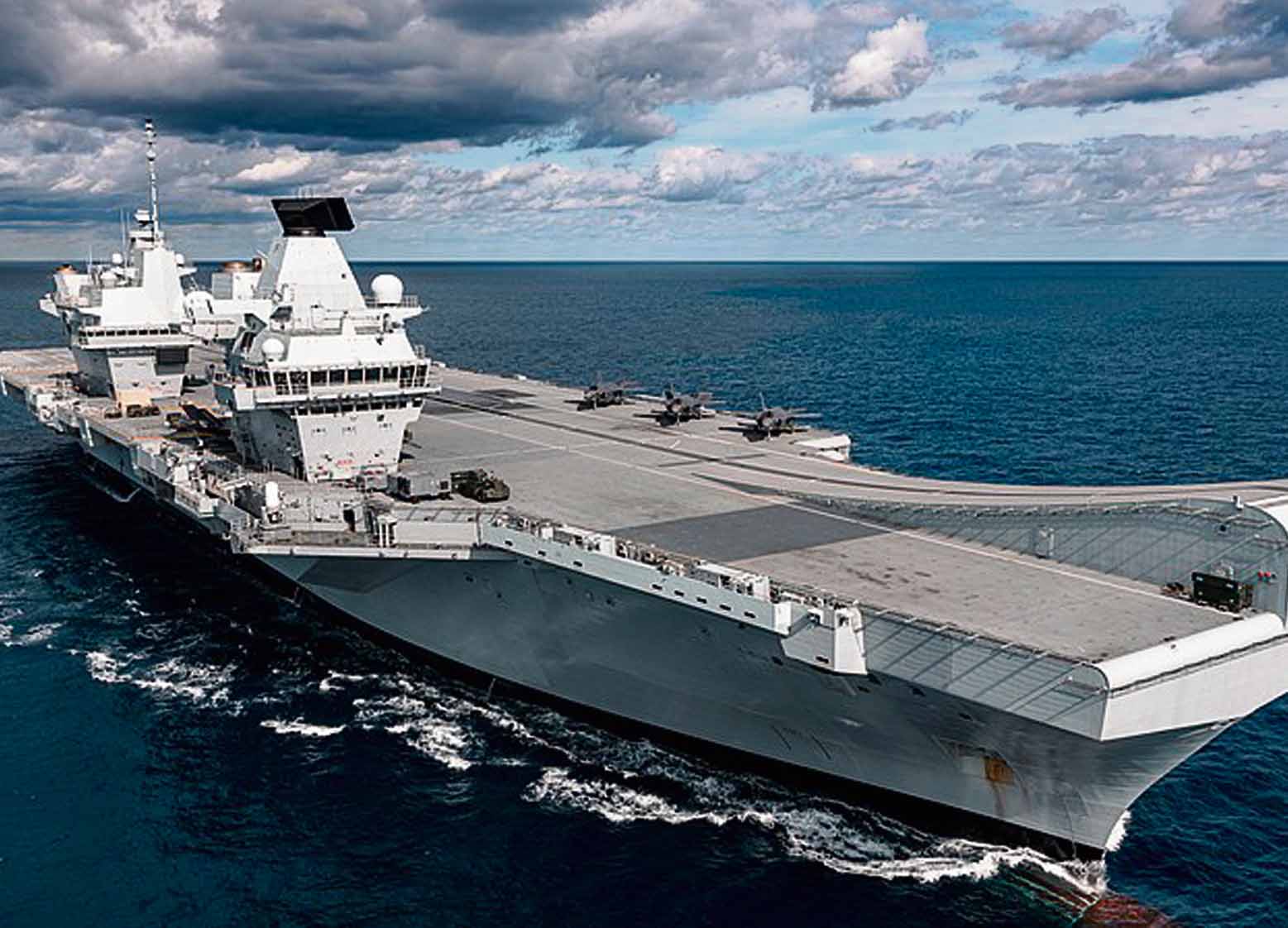Aircraft carriers are by no means ‘obsolete’
Thursday, 19th October 2023

HMS Queen Elizabeth [Wikimedia Commons: UK Govt Open Government Licence Oglv1.0 Cropped]
• I WRITE in response to Glenn Meredith, (Carriers are obsolete, October 5).
British interests are worldwide. Ships carry 95 per cent of United Kingdom trade including significant imported energy.
Some 70 per cent of the planet’s surface is sea but there are nine maritime choke points where merchant ships transit.
The Royal Navy plays an important part in maintaining the freedom of the seas and protecting 14 UK Overseas Territories.
Allied warships’ main business is deterrence; two US carrier strike groups are in the Mediterranean now. No aircraft carrier operates alone and a Royal Navy carrier task group will be protected by escorts (perhaps some from allied navies).
If deterrence fails and hostilities commence, carriers and their naval air groups afford significant combat power and, of course, the UK is then likely to be operating alongside allies.
In peacetime aircraft carriers provide great utility, humanitarian aid and disaster relief, as well as platforms for overseas trade missions and port visits in support of “global Britain”’.
Eleven countries operate aircraft carriers and five have carriers under construction.
“Obsolete” says Glenn Meredith, “a sitting duck” for modern weaponry, says he. But many states disagree.
No aircraft carriers have been lost since 1945. Our two carriers have an anticipated life of some 40 more years.
LESTER MAY, NW1
Lieutenant Commander
Royal Navy, retired